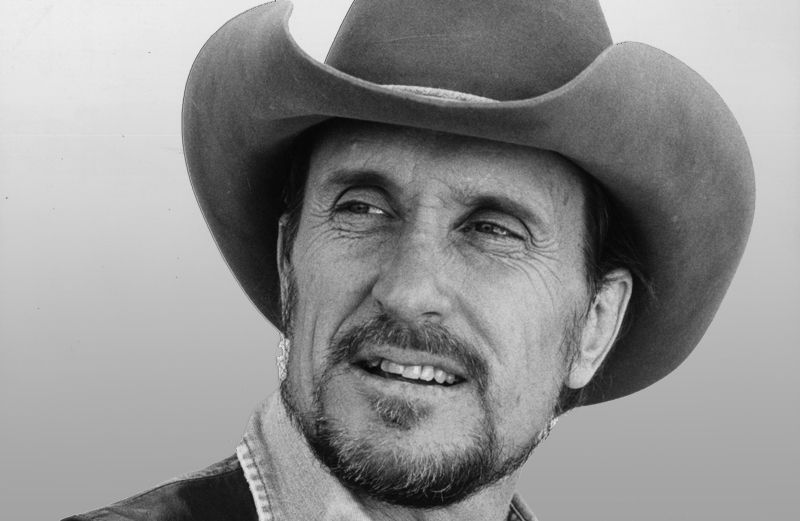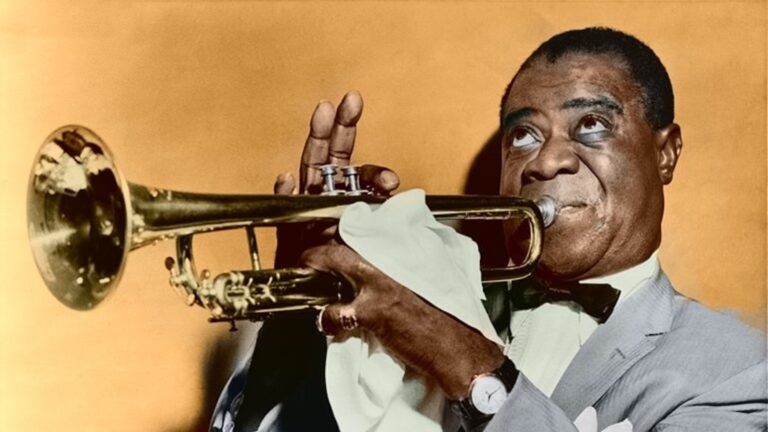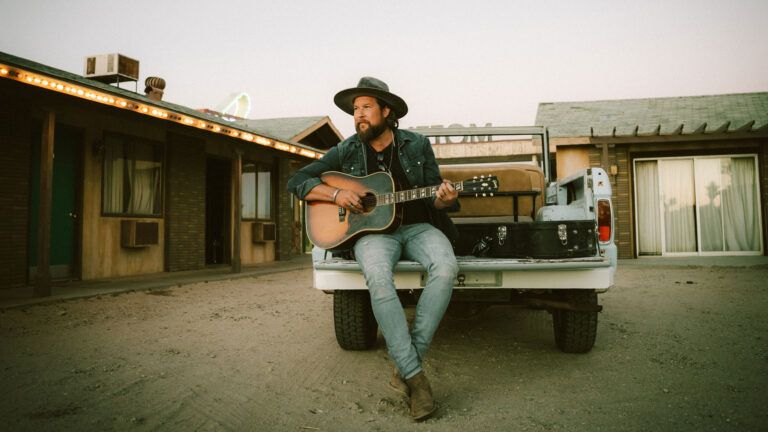I’ve been an actor all my working life, and learning a part has always meant more than just memorizing my lines.
I immerse myself in the character I am to play. I find out everything I can about who he is, the world he comes from, his dreams, his fears, his passion, his humanity. I try to transform myself.
A remarkable thing can happen in this process. Many times I discover something new about myself. Sometimes it is a discovery that changes my life.
In my current movie, which I also wrote and directed, I play a troubled preacher who calls himself The Apostle. For years I have wanted to make this film. It’s been a labor of love, and it began in 1962 when I prepared to play a character from the rural South in an off-Broadway play.
To research the role I traveled to Hughes, Ark. Wandering the streets of the sleepy Delta town, hanging out in the coffee shop and the post office, I hoped to learn something about my character from the way a man tipped his hat or drawled the directions to the local hotel.
But what I never expected to find was something that would change how I looked at religion.
One Sunday as I strolled down the main drag I noticed people flocking to a simple white clapboard building, the local Pentecostal church. All sorts of folks, young and old, were going inside, where I could hear the clink of tambourines, the rap of a snare drum and organ music rising.
Might as well check this out, I thought. I slipped in and sat in back.
I grew up in a churchgoing Navy family. During World War II we lived in Annapolis, Md., while Dad commanded a destroyer escort in the North Atlantic, playing a deadly game of cat and mouse with German U-boats.
Occasionally Mom woke up in the middle of the night with the overwhelming urge to pray for him. One morning at the breakfast table she told us of the trouble she had sensed Dad was in.
Later we learned he had narrowly escaped being blown sky-high by a German torpedo during the night.
READ MORE: DEAN JONES ON GOD’S PEACE
So I knew about the inner life of the Spirit, but I had never seen such an extraordinary outward expression of faith as I witnessed in that Pentecostal church. I had never seen church like that.
People could barely contain the joy of their faith. Their faces were alive with it, imbued. Folks were on their feet, singing praise and clapping, shouting to God! The air crackled with the Spirit.
It was nearly impossible to be a mere observer. I wanted to sing and shout with them. I couldn’t explain it, but I knew the people in that church had a gift, a story to share. Somehow, someday, I would tell that story.
Soon after, my career boomed. I started working in movies, dozens of them, from To Kill a Mockingbird to The Godfather. I was fortunate to get some excellent roles. I wrote and directed a couple of films.
Yet my interest in Pentecostalism never waned, incubating until I could figure out what to do with it. Then in 1981 I was cast as an evangelical preacher in a movie called The Kingdom.
Again I immersed myself in my role. I made trips to small country churches all over the heartland, seeking out the incredible power of expressed faith I had felt in Hughes, soaking up all I could.
But after months of preparation the film was canceled. I wondered what I would do with all I had learned.
In 1983 I won an Oscar for my portrayal of a down-and-out country singer who finds salvation in the film Tender Mercies. After I was named Best Actor I expected the offers to flood in. But my telephone was surprisingly quiet. There was a lull in my usually busy schedule.
READ MORE: CLIFF ROBERTSON ON PERSEVERANCE
I went home to Virginia, where my parents had retired and where I live when I’m not shooting a movie. My father had died and Mom was ailing. My two brothers and I were trying to figure out what would be best for her, and I needed to be there.
I kept thinking of my mother’s faith and how it had sustained her all the years Dad was at sea, how it had sustained all of us, how she prayed for me when I went off to New York to study acting.
I was not a tortured artist from a troubled family; I had strong parents and a solid childhood. It seemed like only yesterday when we kids were fishing soft-shell crabs out of the bay, laughing and one-upping each other.
One day I sat at the desk in my father’s wood-paneled den. Studying the walls, I was struck by his innate modesty.
A rear admiral in the Navy, he had no plaques or medals displayed, none of his citations or awards for bravery. Everyone knew he was a hero. His career had spoken for itself. He believed in his country.
I sat and wondered what I would be remembered for. Looking around my father’s study and suddenly sensing the unyielding passage of time, I felt I needed to do something that had real meaning for me, before it was too late. Something I believed in.
I took out a legal pad and began writing a story, the one I had wanted to write for many years.
A story of a preacher. A good man but a flawed one—flawed as we all are. Called by God at the age of 12, he becomes a respected minister with a rousing gift for charismatic preaching. But his family is torn apart by marital infidelity.
In a dreadful moment of jealous rage he injures a man and runs. His flight becomes a journey toward a redeemed faith, a return to God’s saving grace.
Assuming a new identity, he starts a church deep in the Louisiana bayou. Again his gift for preaching sweeps up a congregation, returning faith to a town where it had lagged, but his own redemption can come only when he faces the truth of his transgressions.
What was most important to me was to make a movie where Christianity was treated on its own terms, with the respect it deserves. Hollywood usually shows preachers as hucksters and hypocrites, and I was sick and tired of that.
I wanted to show the joy and vitality I had seen with my own eyes and felt in my heart and in my life, the sheer, extraordinary excitement of faith. I especially wanted to capture the rich flavor, the infectious cadences and rhythm of good, down-home, no-holds-barred preaching.
READ MORE: KARL MALDEN ON FINDING PEACE
The story seemed to flow from me. I wrote everywhere, in airports and hotels, on set between scenes, even in meetings. But writing a screenplay is one thing. Getting it produced is something else altogether.
I took my script to Hollywood producers, and was met with the same response: “Bob, religion is not a subject our audiences want to watch.” I disagreed. Why wouldn’t audiences want to watch a movie about something that is foremost in so many people’s lives?
I kept gathering material for the film and reworking the script. Near my house in Virginia I met an astounding 93-year-old preacher named Isham Williams. “If I was any younger I’d make that movie with you,” he declared.
I was even more impressed when preachers I met said I could use anything I wanted from their sermons. No squabbles about copyright or screen credit. James Robison, one of the greatest, gave me free run. I adapted one of his most powerful sermons for the penultimate scene.
I called the film The Apostle—what my protagonist, Sonny, calls himself when he sets up his new church. In my research I was drawn several times to Memphis.
Once, I attended a conference of believers, where I overheard the phrase I used when Sonny prays: “I always call you Jesus, and you always call me Sonny.”
I wasn’t getting anywhere with Hollywood, yet my work on the movie filled my soul. One Sunday in New York I visited six churches, ending up at Harlem’s vast Abyssinian Baptist Church.
There in a packed congregation before a huge choir, when we all began to sing “What a Friend We Have in Jesus,” I found myself connected to the Lord in a way I had never felt before, deep within me.
Yes, I thought, we’re all kin through Jesus. Not just what we read about him in the Bible, but who he is. That was the secret to powerful faith, the power I wanted to convey in my movie.
READ MORE: ANDY GRIFFITH ON GOD’S GRACE
I told anybody who would listen, “Even if I can’t get some big money from a studio, I’ve got to make this movie.”
The next thing I knew my accountant called me up and said, “I know this is an important project for you, Bob. I’ve been poring over your finances and you’ve finally gotten to the point where you can afford to spend a chunk of your money.”
He is a very conservative accountant, so I knew I was getting the green light!
In the end, that’s what I did. Some of my Pentecostal friends tell me my urgings were the Holy Spirit’s doing. I’m inclined to agree with them. In an amazingly swift seven-week period we filmed The Apostle, all on location in Louisiana.
The things I worried about never came to pass. Generators didn’t break down, the weather was good, people showed up on time, no one got sick.
I’m proud of the film. Many of the parts are played by real people and real preachers, not professional actors, because true faith is something that’s hard to duplicate.
I think some viewers might be shocked—pleasantly so, I hope—to hear Jesus’ name mentioned so often, or startled by the unironic tone of the church scenes and worship services. They might be surprised to see blacks and whites worshiping together as equals even in the deepest rural South.
Mostly, I hope they will be moved—moved the way I was when I happened upon that small church in Hughes, Ark., and with no warning something awakened within me that had always been there, dormant and untouched until that day. It was the greatest discovery I ever made.
For more inspiring stories, subscribe to Guideposts magazine.





